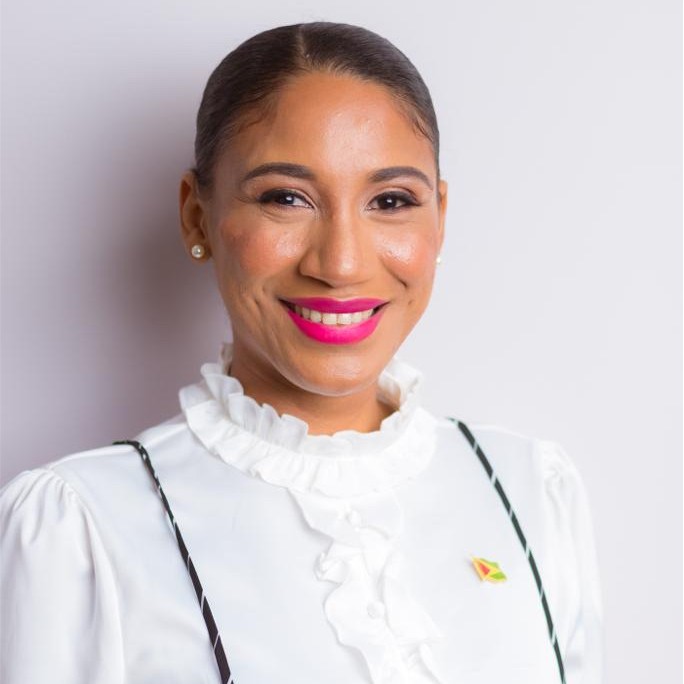Businesswomen face challenges in accessing financing, unemployment rate higher than men – study finds
By Sharda Bacchus
Access to funding for business projects, training and education in business management and the lack of business infrastructure are the most “pressing” challenges being faced by women-owned businesses in Guyana.
And during the COVID-19 pandemic, 53 per cent of women-owned businesses felt a negative impact while the remaining 30 per cent experienced no change. But despite this, women entrepreneurs remained resilient and reinvented themselves “quickly”.
This was among the findings of a study which was conducted in 2022 by WEConnect International on women-owned businesses in Guyana.
And to address the challenges, the Project Manager, Marta Blanco on Thursday disclosed that there is a need for financial products and services, capacity building, training, accelerators and incubators for women entrepreneurs.

“…Women are at the top, they are well established and everything. They have, for example, a house or a warehouse property that they can use to access credit through the normal banking system but for the ones in the middle, there are no products for them and those are the ones that we need to push up, they need money to grow,” Blanco told a press conference on Thursday.
According to Blanco, who addressed the press conference virtually, globally 30 per cent of the businesses are women-owned but only ONE percent participate in the supply chains in the purchasing powers of governments and private companies.
And despite being educated, she said the unemployment rate among women IN Guyana is 2.4 percent higher than men.
“There is a huge room for improvement for women to grow because women already have their businesses, they are providing services and products. We just need to open the doors to have equal opportunities for them,” Blanco said.
The project was funded by Inter-American Development Bank (IDB) through Thunderbird School of Global Management to implement the WE3A: Strengthening Women Entrepreneurs in Value Chains Project in Guyana.

The main objective was to understand the challenges and opportunities faced by women-owned businesses to grow by selling their goods and services to large corporations and identifying the support system and the type of assistance they receive from business support organisations.
Meanwhile, President of the Women’s Chamber of Commerce and Industry, Rowena Elliot noted that in order to improve the quality and standard of their products, women entrepreneurs are being encouraged to get certified and standardised through local agencies.
Equally important, she said is the creation of partnerships to build their businesses.
“…Some of them are costly as it relates to the certifications but then as it relates locally, getting their products with the Made in Guyana stamp, that’s a process that can be done through us connecting with the agencies locally just to encourage them,” Elliot said.
“Getting into entrepreneurship for women. It’s still a little bit new maneuvering for women-owned businesses but we are getting there…Just come together and build consortiums,” she added.
Elliot said a lot of women are inclined to certify their businesses since it increases their market, thereby providing more opportunities.





